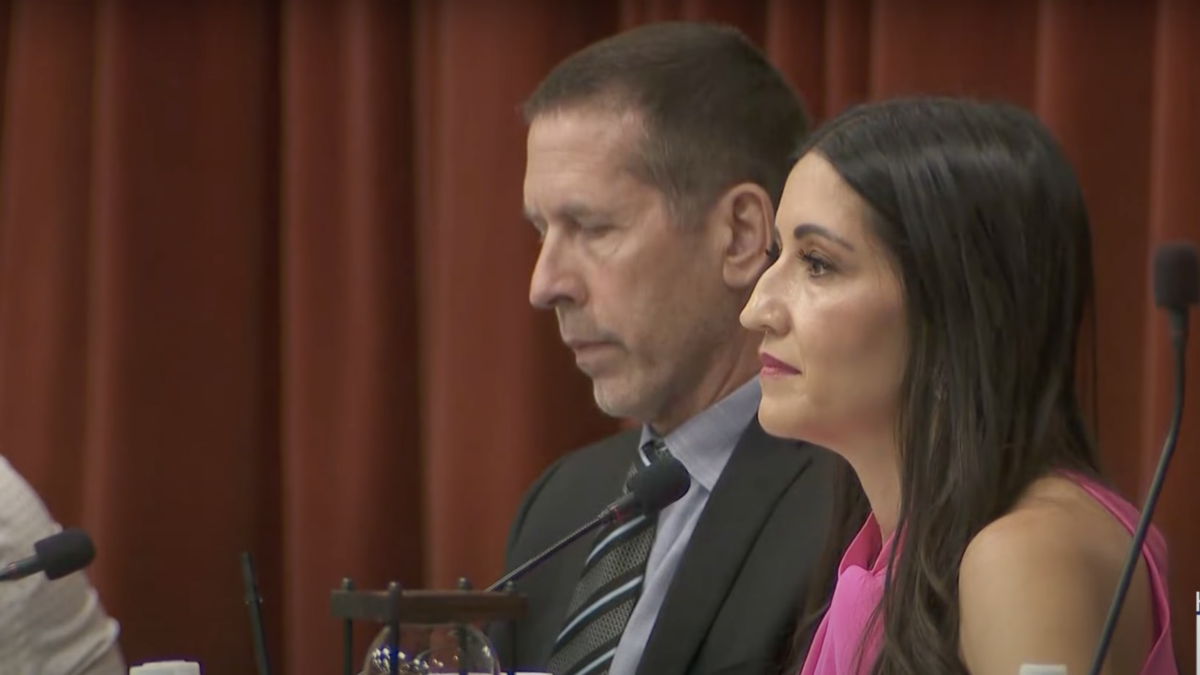
When Savannah Lefler’s Michigan high school tried to muzzle her for Christian themes in a valedictory speech, she fought back and won.
Lefler was the valedictorian of John Glenn High School, and as a result of her academic success, was selected to give a prerecorded speech at the annual honors night. Having more or less free reign, she took the classic commencement speech route, “looking to the future and defining the purpose of life from my perspective,” as she described. She wanted to deliver a message that would support the young seniors and help them live fruitful and good adult lives. A devout Christian, Lefler included a paragraph among her academic reflections and life philosophies about God’s integral role in having a life of meaning. Not only did the principal not agree, but he took steps to shut it down.
“My principal emailed me telling me that there was a problem with it the day it was supposed to be recorded,” Lefler told The Federalist. The problem? “It gets very Christianized,” he said.
“He used an argument of freedom of religion to say it wasn’t inclusive enough,” Lefler explained, but as she noted, the First Amendment goes both ways. “I explained to him that it was my freedom of speech and religion to say these things, and I was chosen based on neutral criteria.”
After this conversation, the school contacted its legal adviser and a meeting was set up with Lefler and her parents, delaying the recording by over a week. Her family likewise sought representation, partnering with First Liberty’s Stephanie Taub.
Taub sent a letter to the school and the press the day before the scheduled meeting with the legal advisers, detailing Lefler’s censorship. “The school backed down that day,” Lefler said. “It was very awesome.”
They reached a compromise, wherein the school would give a disclaimer before Lefler’s address, declaring it to be her words and not representative of the school’s position. While the senior couldn’t recall any other instances of speeches being hit with such a disclaimer over her four years at the school, she viewed the compromise as a win.
“That’s what we wanted in the first place,” Lefler said, “as long as I can give the speech that I intended to give.” Her attorney concurred, calling the decision “a wonderful solution,” as “it makes it clear that this is the private speech of Savannah.” Valedictory speeches are legally considered to be private student speech and are therefore legally protected, according to the Department of Education.
“Students have a constitutional right to free speech,” Taub explained. “The Supreme Court has recognized that is unconstitutional viewpoint discrimination to discriminate against the private speech of students just because it’s coming from a religious perspective.” Unfortunately many schools “misunderstand their obligations” in maintaining a separation of church and state in the classroom, replacing freedom of religion with freedom from religion, Taub explained, “They have a duty to be neutral, but they can sometimes interpret this as a duty to scrub any mention of religion from the school environment, which can go overboard and infringe onto students’ rights.”
When asked where she found the strength to stand up to her high school, Lefler replied: “My trust is in Christ. It goes back to what my prompt is. My purpose is glorifying God. I want to do this in proclaiming His truth, and the hope is in me.” Lefler also said she was blessed with “an overwhelming support from my friends and from my church family,” with next to no reactions from teachers or classmates once the story became national news.
“Stand up for what you believe in,” Lefler advised young people who want to be more open with their beliefs. “I’m just so grateful that this is a free country, and that we have freedom of speech, and so we can fall back on the Constitution and express ourselves. We should use the opportunity we are given in this country.”
Discussing what students can do if they face “religious censorship” in the classroom, Taub recommended talking to First Liberty, just like Lefler did.
Below is how Lefler recounted the religious part of her speech:
I urge that we must look forward to the future, and we cannot do this without reflecting on the purpose of life. I’d argue that the purpose of life is to live a life devoted to Christ. God is holy, good, and just. Man is unholy, bad, and unjust. Romans says that ‘the wrath of God is being revealed from heaven against all the ungodliness and unrighteousness of men, who suppress the truth’ (Romans 1:18). This creates a problem, because we cannot fulfill our purpose in glorifying God because we are condemned by imperfect holiness. God shows his love for us because, while we are still sinners, Christ died for us. Christ died a bloody death on the cross, and was raised to life, thus vindicating His holiness and divinity. I explained in my speech that this allows us to fulfill our purpose in glorifying God, because we can now stand blameless before him if we repent and trust in His finished work and in Christ.









